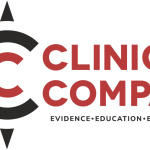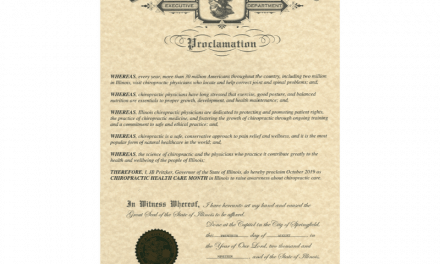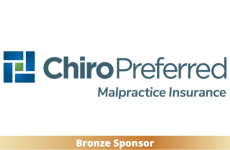
Legislative Update June 2019

The 101st General Assembly officially began on January 9, 2019. This session has been very busy. There were over 2,200 Senate Bills introduced and over 3,800 House Bills introduced. The ICS legislative team reviews each bill and any amendments filed to examine any possible impact to chiropractic.
At the end of the legislative session, several of the Governor’s initiatives passed the legislature as well. This includes increased minimum wage, legalization of cannabis, capital plan, progressive income tax amendment and a state budget. Some of these items will be covered in more detail later in the article.
The 2019 Legislative Session for the Illinois General Assembly adjourned over the first weekend of June. There was a one-day overtime session for each chamber. The House officially adjourned on June 1, 2019, and the Senate officially adjourned on June 2, 2019.
Below is a summary of several pieces of legislation in which the ICS legislative team was active in or monitored for our members:
ICS Legislative Agenda
This year the ICS prioritized three main initiatives: Provider Non-discrimination, Return to Play, and Medicaid. While these are long-term issues, we continue to prioritize them at the highest level.
- Provider Non-Discrimination Provision: This year we introduced HB 2162 (Hoffman) which would prevent health plans from discrimination against provider categories and allow patients their choice of provider. We received substantial opposition from the insurance industry. The legislation was unable to move, but we continue to look for ways to advance this issue.
- Return To Play: Currently, under the School Code in Illinois, chiropractic physicians are not among the health care providers permitted to remove an athlete from activity for a possible concussion or certify a high school athlete to return to play, either after there is no concussion or after recovery from a concussion, even though those these activities are within chiropractic scope under the Medical Practice Act. The ICS legislative team introduced HB 2850 (Morrison, T.) to provide chiropractic physicians the authority to remove a student from play and return an athlete to play as part of concussion management. The legislation was opposed by several other provider groups, and we continue to look for ways to advance this issue.
- Medicaid Inclusion: The change in Administration in the Governor’s office reignited our conversations to advocate for the inclusion of chiropractic physicians in the Medicaid program. During the session, conversations began with legislators and the Administrator of the Medicaid program at the Department of Healthcare and Family Services. We look forward to continuing these conversations and will continue to advocate for Medicaid inclusion.
Other Legislation of Interest
In a legislative session, our legislative team not only deals with ICS initiatives but several other pieces of legislation. The ICS legislative team spends time analyzing and reading the large amounts of legislation and amendments filed each year. This year we tracked over 200 pieces of legislation. Some of the more significant pieces of legislation are summarized below:
Specific Legislation of Interest to Chiropractic Physicians
SB 1221 (Jones III, E./Harris, G.)-Medical Practice Extension: The Medical Practice Act (MPA) is the licensing Act that licenses chiropractic physicians, medical doctors, and doctors of osteopathic medicine. This year the MPA Is scheduled to sunset on December 31, 2019. This means, without further action, the law would be repealed on January 1, so legislation needed to pass to extend the MPA. This legislation provides a two-year extension of the MPA until January 1, 2022. Only recently has the MPA had two-year extensions. For the past several years, the extension was only granted one year at a time.
The legislation now allows for the Illinois Department of Financial and Professional Regulation (IDFPR) to email licensees notice of formal disciplinary proceedings instead of sending hard copies by certified mail. Currently, these notices are sent by certified mail. Therefore, it is very important for doctors to have a correct and updated email address with IDFPR. As the Department continues to go paperless, we want our doctors to be aware of this change.
The legislation passed both chambers unanimously and awaits action from the Governor.
HB 2233 (Thapedi/Mulroe)- Special Interrogatories: HB 2233 was an initiative of the Illinois Trial Lawyers association to completely repeal special interrogatories. Special interrogatories are written questions that litigants may submit to a jury to question them about the basis of their verdict (i.e., to verify that they understood medical evidence admitted in the case and that their verdict correctly lines up with the medical evidence). As introduced, the legislation would completely eliminate a litigant’s right to submit special interrogatories to question a jury about the basis of their verdict. The ICS initially opposed this legislation because removing the provision has the potential to result in faulty, unjustified verdicts against providers due to a jury’s misunderstanding of medical protocols.
An amendment was filed on the legislation that ultimately removed the opposition of the ICS and other healthcare providers. Instead of a full repeal of special interrogatories, the amendment still allows the use of special interrogatories in a jury trial. Either party may request special interrogatories following a verdict. If the court believes the jury’s findings and verdict are inconsistent with the evidence, the court must order a new trial.
HB 2233 passed the House with a vote of 74-37-0 and the Senate with a vote of a 37-17-0 and awaits final action from the Governor.
SB 653 (Sandoval/Jones, T.)-CPT Codes and Time-Based Billing: Late in the session, the Illinois Physical Therapy Association (IPTA) introduced legislation that prohibits health care plans under the Illinois Insurance Code from implementing a time measurement standard that results in fewer units billed than allowed by CPT guidelines. The legislation exempts federal programs from this requirement. The legislation was introduced to address an issue that physical therapists are having with an insurance company. The ICS supported the legislation. SB 653 passed the House with a vote of 79-38-0 and the Senate unanimously and now awaits action from the Governor.
SB 1778 (Morrison, J./Feigenholtz)-ANCRA Mandated Reporter Training: Legislation was passed this session to update the Abused and Neglected Child Reporting Act (ANCRA). Chiropractic physicians are and will remain mandated reporters under ANCRA. The changes to the legislation including adding various professions to the list of mandated reporters, implement training requirements for mandated reporters, and outline a public awareness campaign regarding child abuse and neglect. Chiropractic physicians, along with all mandated reporters, will be required to complete continuing education under this legislation. The ICS will provide more details about the training requirements as the law becomes effective and the rules implementing the law are adopted. The rules will provide further guidance on how to comply with the training requirement.
SB 1778 passed the House with a vote of 91-14-0 and the Senate with a vote of 50-7-0 and now awaits action by the Governor.
SB 1214 (Cullerton, T./Villa)-Phlebotomy Training: This past spring, legislation was introduced to require training for individuals drawing blood from patients with developmental disabilities. The initial draft of the legislation was very vague. ICS worked with other healthcare groups to clarify the intent and scope of the legislation. SB 1214 requires the Illinois Department of Public Health to make those training materials available and review them every three years to ensure they follow best practices. The legislation does not apply to physician offices (i.e. does not apply to chiropractic physician offices). The legislation applies to hospitals, ambulatory surgical treatment center, long-term care facilities, and licensed emergency services personnel who employ phlebotomists.
SB 1214 passed both chambers unanimously and awaits action by the Governor.
HB 1652 (Greenwood/Belt)-Service Member Licenses: HB 1652 was designed to expedite licensure for military members and their spouses. The legislation requires IDFPR to expedite the review and determination of the service member or his/her spouse’s application within 60 days, provided all necessary documentation has been received. Also, it requires IDFPR to have a designated staff member to oversee and coordinate the expedited applications. This legislation applies to all categories of licensure, not just to chiropractic physicians.
HB 1652 passed both chambers unanimously and awaits action by the Governor.
SB 132 (Hutchinson)-Medical Implicit Bias Training: Legislation was filed that would have required individuals licensed under the Medical Practice Act and the Nurse Practice Act to complete implicit bias training. IDFPR would have been charged with developing rules that would have outlined the training requirements.
SB 132 was assigned to the Senate Licensed Activities committee but was not called for a vote.
SB 471 (Hutchinson/Gordon-Booth)-Healthy Workplace Act: Earlier in the year, we reported on this legislation as HB 2343 (Gordon-Booth) and SB 1972 (Hutchinson). Neither of those pieces of legislation moved through the process. However, the provisions of those two pieces of legislation were amended onto SB 471. The legislation created the Healthy Family Workplace Act. The bill requires employers to provide a specified amount of sick leave to their employees.
The legislation was originally introduced two years ago but not passed into law. The initial legislation did not allow chiropractic physicians to certify the employee’s sick leave. At that time, the ICS was able to amend the legislation to clarify that chiropractic physicians could certify the employee sick leave under this Act. The various versions of the legislation have continued to include our changes. We continue to ensure the changes remain intact.
SB 471 passed the Senate with a vote of 34-15-0 and assigned to the House Labor and Commerce Committee but was not called for a vote.
Other Healthcare-Related Legislation
HB 345 (Lilly/Morrison, J.)-Tobacco Products Under 21: HB 345 prohibits tobacco products to be sold to individuals under 21. This legislation is an initiative of the American Lung Association in an effort to reduce smoking.
HB 345 passed the House with a vote of 82-31-0 and the Senate with a vote of 39-16-1. The Governor signed the bill and it is now P.A. 101-0002.
HB 1470 (Flowers)-Medical Safety Device Act: Legislation was introduced that would have required medical devices that were surgically used by a patient to be under warranty. Also, it would have required hospitals to waive the costs of any surgeries that were needed as follow-up because the device was defective. Several healthcare groups opposed this legislation because providers cannot guarantee a result for patients.
HB 1470 was assigned to the Commercial Law Subcommittee of the Judiciary-Civil Committee but was not called for a vote.
HB 2328 (Thapedi)-Hospital Licensing Non-Compete): HB 2328 would have prohibited hospitals from containing non-compete provisions in the contracts with their physician employees. HB 2328 was assigned to the House Health Care Licenses Committee but was not called for a vote.
HB 2338 (Gabel)/SB 1220 (Jones, III)-Naturopathic Physician: This session legislation was introduced to grant licensure to naturopathic physicians. HB 2338 was assigned to the House Health Care Licenses Committee but was not called for a vote. SB 1220 was assigned to Senate Licensed Activities but was not called for a vote.
HB 3511 (Flowers/Belt)-Maternal Mental Health: HB 3511 requires the Illinois Department of Human Services to develop educational materials for health care professionals and patients about maternal mental health. The legislation also requires birthing hospitals to distribute the materials to employees who regularly work with pregnant or postpartum women. HB 3511 passed both chambers unanimously and awaits action by the Governor.
Minimum Wage Increase
Currently, the State requires minimum wage to be $8.25/hour. One of Governor Pritzker’s top priorities was to increase the State’s minimum wage to $15/hour. Early in the session, legislation passed to increase the State’s minimum wage law. The Governor signed the legislation and it is now P.A. 101-0001.
The increased minimum wage will be different based upon the age of the employee. The increases will happen over the next few years and will be fully implemented by the year 2025.
For employees over the age of 18, regardless of number hours worked, the minimum wage increase will work as follows:
January 1, 2020: $9.25/hour
July 1, 2020: $10/hour
January 1, 2021: $11/hour
January 1, 2022: $12/hour
January 1, 2023: $13/hour
January 1, 2024: $14/hour
January 1, 2025: $15/hour
For employees under the age of 18 and who have NOT worked more than 650 hours in a calendar year, the minimum wage increase will work as follows:
January 1, 2020: $8/hour
January 1, 2021: $8.50/hour
January 1, 2022: $9.25/hour
January 1, 2023: $10.50/hour
January 1, 2024: $12/hour
January 1, 2025: $13/hour
If an employee is under the age of 18 but has worked more than 650 hours in a year, an employer is required to pay the same minimum wage for individuals that over 18 years of age.
There are some potential payroll tax credits that were implemented as part of the minimum wage increase. Chiropractic physicians who may qualify for those tax credits should discuss that issue further with their accountants.
State Budget
In a one-day overtime session, the legislature passed a state budget. The Governor has already signed the budget. Therefore, a full year budget will be in place when the State’s new fiscal year begins on July 1.
This year’s budget plan included several new revenue sources, which include a gas tax increase, cigarette tax increase, and gaming expansion. As part of the overall package, a capital plan was passed that is designed to make infrastructure improvements.
The budget plan includes full funding for the State of Illinois Employee Group Insurance Program.
The legislature is not scheduled to return to Springfield until October 28, 2019. Even though the legislature has adjourned from Springfield, ICS’ work never stops. As always, we will continue to advocate on behalf of the chiropractic profession and the patients it serves.















